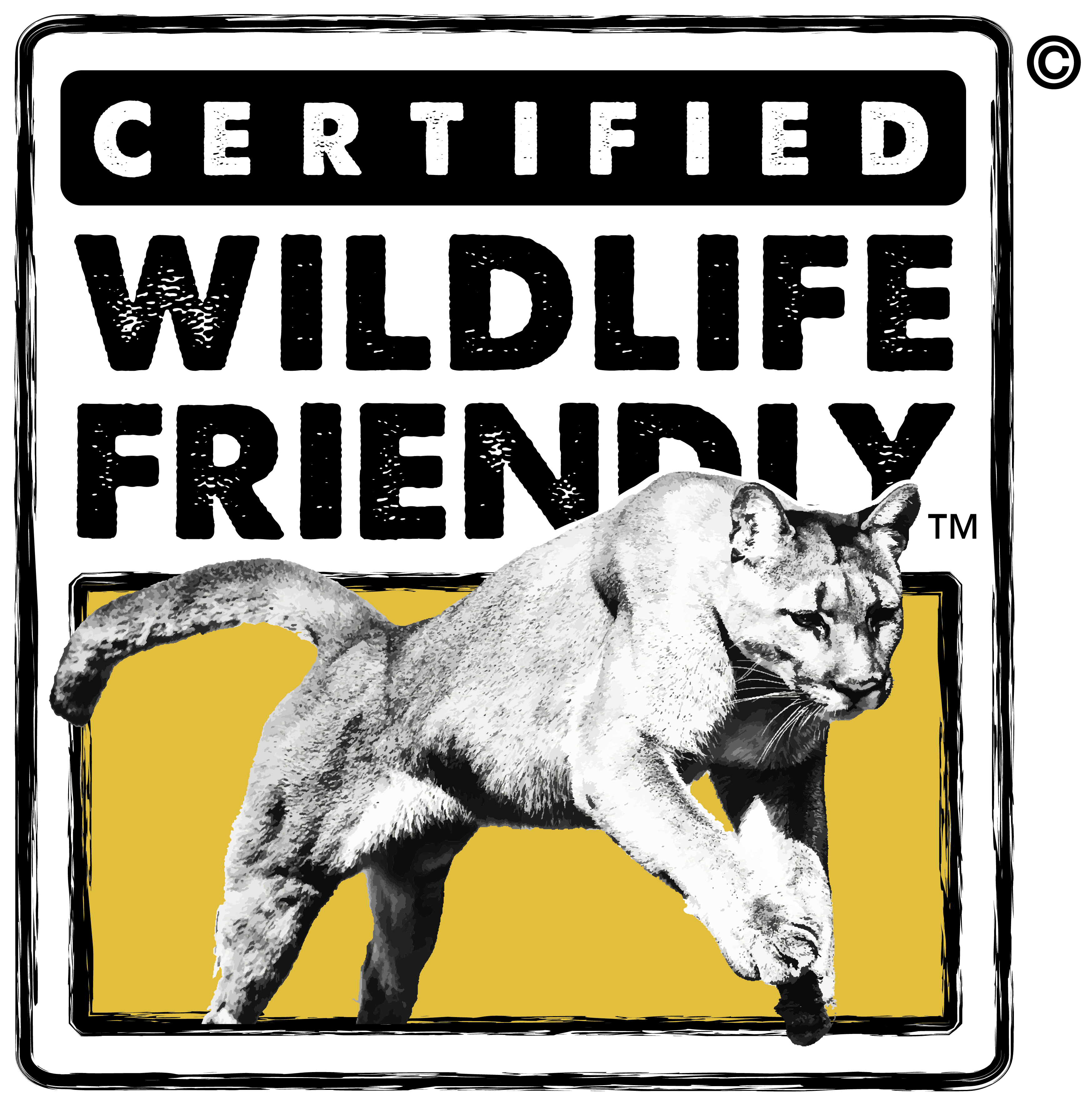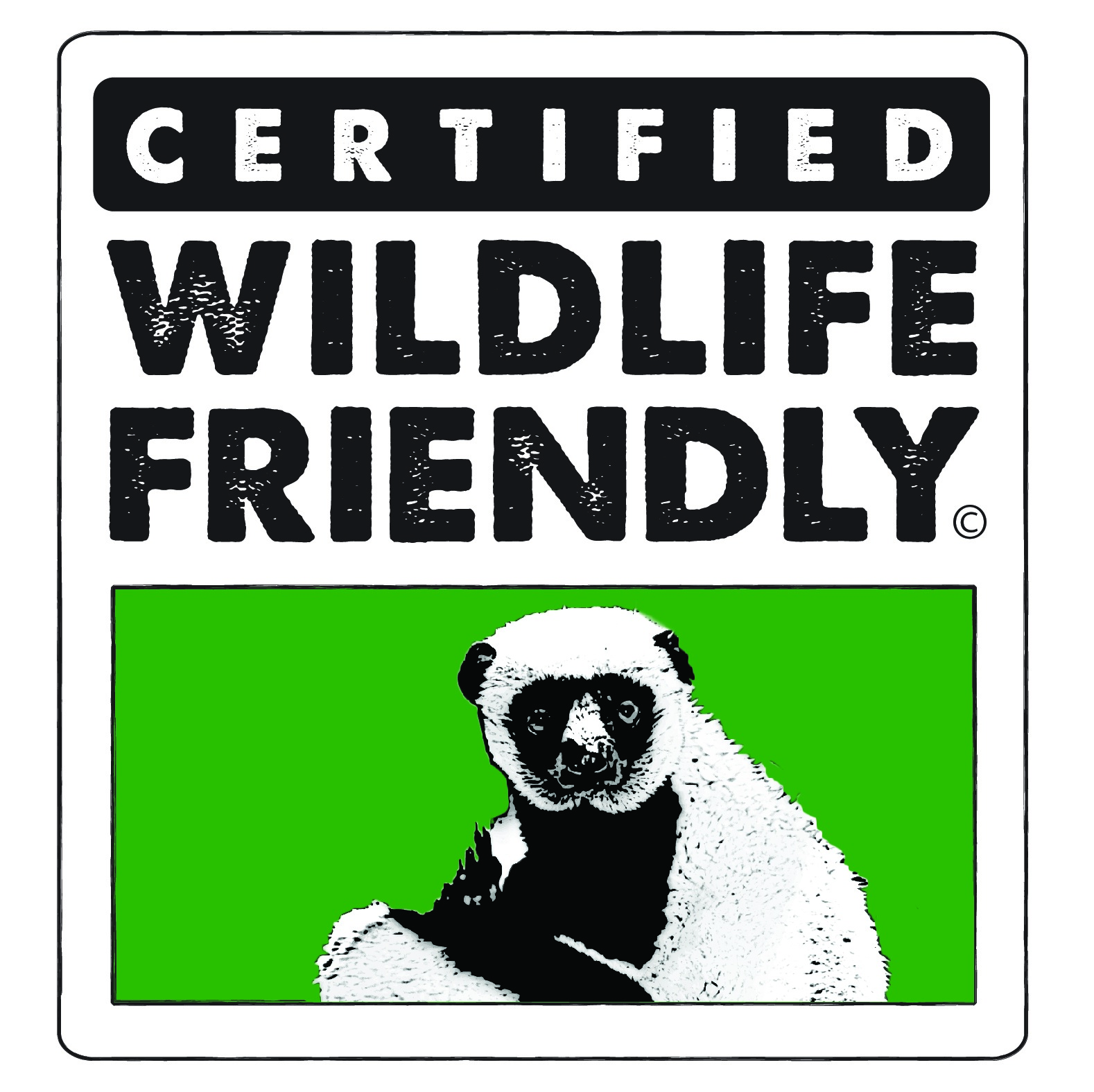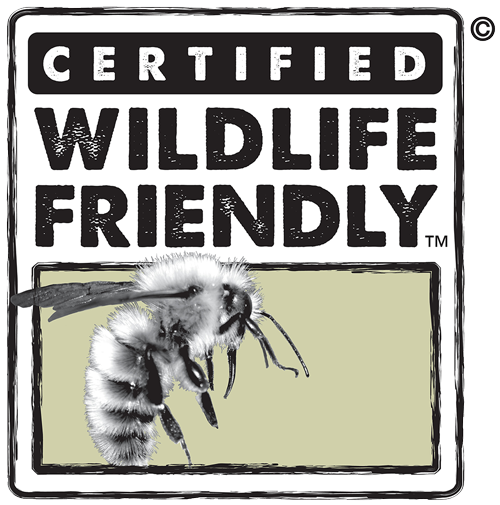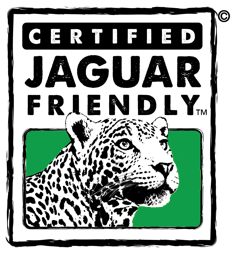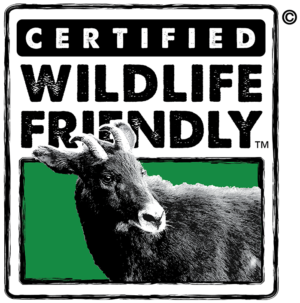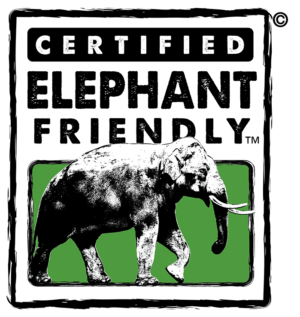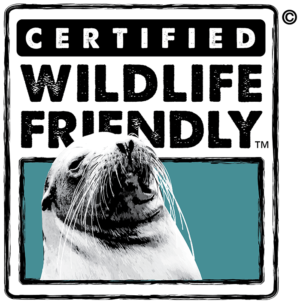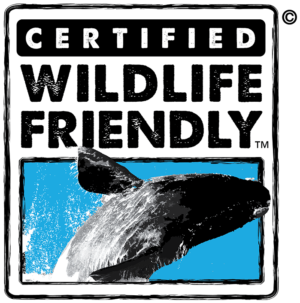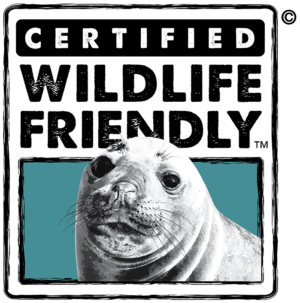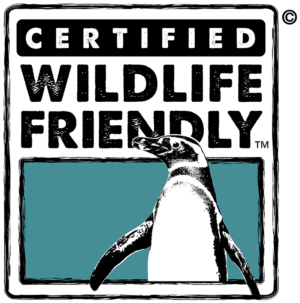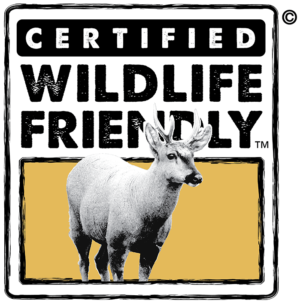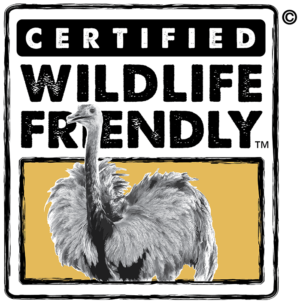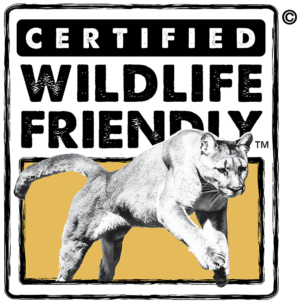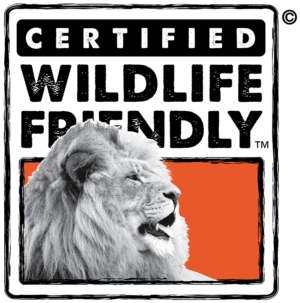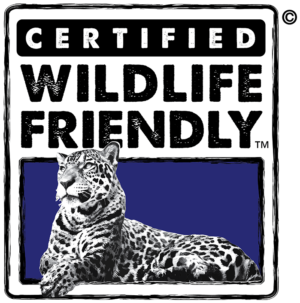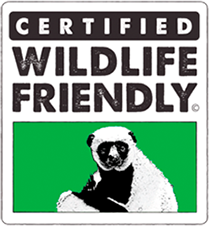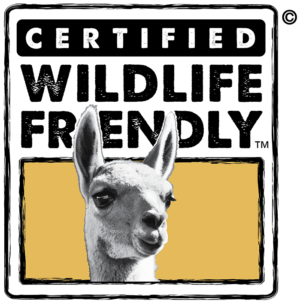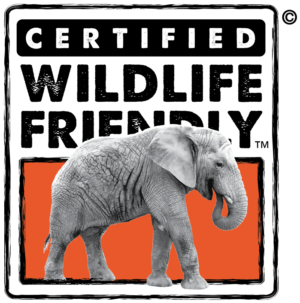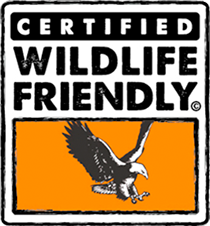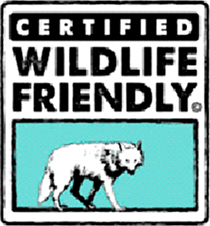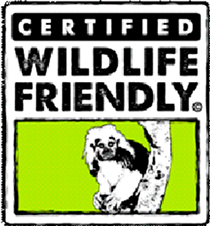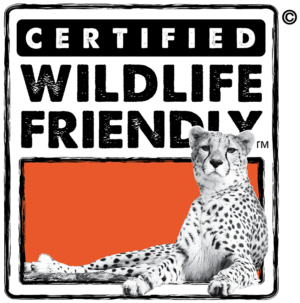Ten Knots Group Awarded World’s First Sea Turtle Friendly™ Tourism Certification
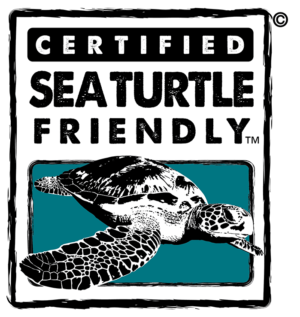


El Nido Resorts and Lio Tourism Estate earn global distinction for their dedication to the conservation of marine turtles through nesting beach protection, reduction of lighting impacts, visitor education efforts
El Nido, Palawan, Philippines: February 19 – 2020 El Nido Resorts and Lio Tourism Estate, a group of private island resorts and a tourism estate in the Philippines that is part of the Ten Knots Group, a subsidiary of the Ayala Land, Inc., become the first in the world to be awarded Sea Turtle Friendly™ Tourism Certification by the Wildlife Friendly Enterprise Network (WFEN). Working with WFEN since 2017 to develop, implement and pilot best practice guidelines for resorts, tour operators, and other tourism businesses to contribute to conservation, El Nido Resorts and Lio Tourism Estate have demonstrated their commitment to sustainability and the protection of biodiversity including critical mangrove, seagrass, and coral reef ecosystems.


These 4 standalone resort properties, Apulit Island, Miniloc Island, Lagen Island, and Pangulasian Island, as well as the 325ha Lio Tourism Estate, have met the requirements for mitigating key threats to sea turtles and their survival through their Be G.R.E.E.N. (Guard, Respect, Educate El Nido) program. This includes implementing best practices to minimize negative impacts on sea turtles. Specific conservation actions include ensuring beachfront lighting that does not cause disorientation of hatchlings, and conducting active sea turtle patrols by staff help to protect nests, hatchlings, and adult turtles from poaching and other key threats. In addition, guest education is prioritized to highlight actions tourists can take to keep sea turtles safe such as keeping a respectful distance from sea turtles in the water, never feeding them, and minimizing litter and marine pollution during their stay. The properties have eliminated disposable plastic products and host beach cleanup efforts to help address the global issue of marine plastic pollution.
Located in Palawan, the province referred to as the ‘last ecological frontier’ of the Philippines, Ten Knots properties span several islands in the municipalities of El Nido and Taytay which are Miniloc, Lagen, Apulit and Pangulasian. In the mainland, they have Lio Tourism Estate, better known as “Lio Beach” – a 325ha sustainably masterplanned mix-use destination. With over 850 species of fish, 45 genera of corals, and at least a hundred species of birds, El Nido also hosts 5 out of 7 marine turtle species in their waters; their beaches are important nesting habitat for 3 including the endangered Green, the critically endangered Hawksbill and the vulnerable Olive Ridley sea turtle. Other rare and protected species found on the resort properties include the Palawan Hornbill, the Asian Fairy-Bluebird, and the Philippine Pangolin.
“This certification comes at an opportune time as Ten Knots celebrates its 40th anniversary this year” says Ten Knots Group Director for Marketing Joey Bernardino. “It validates our efforts, showing us how we are on the right track when it comes to preserving the environment.”

“We are proud to add Ten Knots as part of the global Wildlife Friendly™ family of brands,” said Julie Stein, Executive Director and Co-founder of WFEN. “They are a model we hope other resorts around the world will be inspired by to protect our fragile marine resources through tourism that advances conservation outcomes for species like sea turtles.” The Sea Turtle Friendly™ Tourism program will be open to global applicants early this year. The Sea Turtle Friendly™ standards were developed in collaboration with leading sea turtle experts around the world including Romy Trono, the Wider Caribbean Sea Turtle Conservation Network (WIDECAST), and others.
Tourists can experience the world’s first Sea Turtle Friendly™ resort by flying direct to El Nido via Airswift which has daily flights between El Nido and Manila, Cebu, Puerto Princesa, Busuanga, Clark, Bohol and Boracay. You may book through www.air-swift.com
###
About El Nido Resorts
El Nido Resorts is a group of eco-resorts located in the municipalities of El Nido and Taytay in Palawan, Philippines. Beginning operations in 1979, the resorts offer genuine local hospitality and unique and enriching experiences amidst the beautiful natural landscape. The group is currently comprised of Miniloc, Lagen and Pangulasian Island Resorts in El Nido, and Apulit Island Resort in Taytay. El Nido Resorts has been blessed with being situated in an area of high biodiversity and so stewardship is exercised over the flourishing environment, stressing the importance of preserving nature to all who visit.
Instagram: @elnidoresorts | FB: El Nido Resorts
About Lio Tourism Estate
Lio Tourism Estate is Ayala Land’s first tourism estate located in the paradise of El Nido, Palawan, masterplanned as an integrated resort community with hotels and resorts, commercial establishments, residential communities, amenities and facilities for eco-adventure and leisure travelers. The 325-hectare development is guided by the principles of sustainability and inclusive growth, ensuring the least impact to the environment while benefiting the local community.
Instagram: @lioelnido | FB: Lio Beach
About Be G.R.E.E.N. (Guard, Respect, Educate El Nido)
Be GREEN started out as an environmental education program in 1999 aimed at teaching conservation to Ten Knots staff in the context of their work and personal lives. It eventually expanded to include nature interpretation trainings, community outreach, youth camps, and essentially any and all projects undertaken by Ten Knots’ Environment and Sustainability Department.
Instagram: @enrbegreen | FB: El Nido Resorts – Be GREEN
About Wildlife Friendly Enterprise Network
WFEN and its certification programs represent grassroots farmers, ranchers, herders, artisans, indigenous peoples and conservation heroes from around the world including two World Bank Development Marketplace Award winners, a U.N. Equator Prize winner, leadership in the world’s marketplace for REDD+ Carbon Offsets, and a Time Hero for the Planet. Wildlife Friendly® products contribute to the conservation of over thirteen million hectares of diverse wetlands, forests, and grasslands; protect keystone endangered species in Asia, Africa, Europe, and Latin and North America, including the Snow Leopard, Elephant, Tiger, Cheetah, Red Panda, and Wolf; and benefit over 300,000 people through increased food security, income and employment. For more information visit: www.wildlifefriendly.org, Instagram: @wildlifefriendly, Twitter: @wfen
Contact
Ten Knots and El Nido Resorts: Direct Sales Mobile for El Nido Resorts – 0917 584 1576 (Philippines); holiday@elnidoresorts.com (for bookings); reservations@lioestateresorts.com and holiday@elnidoresorts.com; tkgsustainability@gmail.com
WFEN: Christine Lippai – christine@wildlifefriendly.org

WFEN partners with the University of Montana for state-of-the-field best practice standards for the India tea sector with goal of reducing mortality and ensuring landscape connectivity for endangered Asian Elephants
FOR IMMEDIATE RELEASE
Missoula, Montana – 20 January 2020 – The Wildlife Friendly Enterprise Network (WFEN) has collaborated with experts via a partnership with the University of Montana to develop new science-based standards for the certification of tea producers under the Certified Elephant Friendly™ Tea label. Asian elephant populations are recognized as “globally endangered,” and India is home to the largest remaining population of this species. Over the past 75 years, the Asian elephant population has declined more than 50 percent and only an estimated 45,000 to 50,000 remain in the wild. At least seventy percent of tea agriculture lands in India overlap with elephant range. Commercial tea production in India, which was established in the 1800’s during British Colonial period, continues as a major agricultural industry with India now the second largest tea producer in the world. Human activities have led to widespread habitat loss and fragmentation, yet elephants often use tea plantations as stepping stones between fragments of remaining habitat along their ancient movement routes, sometimes giving birth in tea gardens or visiting the crop fields at the edges of tea gardens opportunistically to forage on rice or other crops. Some of the most substantial – yet fixable – challenges elephants face in and around tea lands include electrocutions, chemical poisoning, ditch hazards, blockage of corridors of movement, degradation of habitat, and human-elephant conflict. The new standards provide guidelines for tea growers who wish to pursue Elephant Friendly™ Tea Certification.

Photo credit: Rajen Boro, Assam, India
The Elephant Friendly™ Tea certification program was developed as an incentive for tea producers to provide safe passage for endangered elephants and to improve tea community safety by applying evidence-based best practices. “By decreasing elephant mortality and human-elephant conflict, the certification program provides a pathway for tea producers to help reverse the global decline of Asian elephants, while simultaneously improving the well-being of tea workers who are often on the front lines of human-elephant conflict,” says Scott Mills, a wildlife biologist at University of Montana, who serves as a scientific partner in the development of the new standards. The costs of implementing the best practices ultimately are expected to be offset over time with premium pricing for Certified Elephant Friendly™ products in a growing global tea market where retailers and consumers increasingly care about sustainability issues. “We are happy to see so much interest from both consumers and tea companies who were both largely unaware their tea had impacts on wild elephant populations, as well as tea growers who would like to communicate their Elephant Friendly™ stories through the label. When tea growers make the transition to growing Certified Elephant Friendly™ Tea, they implement transformative changes that help both elephants and local communities,” says Julie Stein, Executive Director and co-founder of the Wildlife Friendly Enterprise Network, the organization that oversees certification of tea growers under the new standards. As for the tea drinkers who collectively consume 7 billion cups of tea per day, their purchase of Elephant Friendly® Tea makes them active partners in the conservation of endangered wild elephants, one cup at a time.
Contact
To learn more about the Elephant Friendly™ Tea program and the new standards please visit: https://wildlifefriendly.org/elephant-friendly-tea-standards/ or email info@wildlifefriendly.org
Retailers interested in certified products can email elephantfriendly@wildlifefriendly.org
###
About Wildlife Friendly Enterprise Network
WFEN and its certification programs represent grassroots farmers, ranchers, artisans, indigenous peoples and conservation heroes from around the world, including two World Bank Development Marketplace Award winners, a U.N. Equator Prize winner, leadership in the world’s marketplace for REDD+ Carbon Offsets, and a Time Hero for the Planet. Certified Wildlife Friendly® products contribute to the conservation of over fourteen million hectares of diverse wetlands, forests, and grasslands; protect keystone endangered species in Asia, Africa, Europe, and Latin and North America – including the snow leopard, tiger, elephant, cheetah, red panda, and wolf – and benefit over 300,000 people through increased food security, income and employment. For more information visit: www.wildlifefriendly.org
About University of Montana
The University of Montana, a research and higher education institution located in Missoula, Montana, USA, is home of the top-ranked Wildlife Biology Program in North America, and partners in the development of the Elephant Friendly™ Tea Certification Program. For more information, go to: https://www.umt.edu/

Designer Alejandra Gottelli Showcases Homegrown Natural Fibers that Support Argentine Family Farms, Artisans and Wildlife
FOR IMMEDIATE RELEASE
BUENOS AIRES ARGENTINA – JANUARY 07 2020– Cubreme, an Argentine clothing and home goods brand, has joined the Wildlife Friendly Enterprise Network and is now sourcing Wildlife Friendly™ merino wool from Certified Wildlife Friendly™ ranches on Península Valdés in Patagonia Argentina. ‘Cubreme,’ which translates to ‘cover me’ or ‘keep me warm’ in English, is a socially and environmentally focused clothing and home goods line working with small producers to source natural fibers. The brand employs family-owned and operated tailors to hand weave and finish fabrics for the line. Alejandra Gotelli, one of the designers behind the label, explains, “Cubreme was born with the principle objective of sustainable development for the regions where small producers live by utilizing renewable, natural resources such as animal and plant fibers. Our philosophy is illustrated by our logo which has the letter “e” turned in the other direction, as a ‘wink’ towards a return to social equity, environmental balance and business ethics.”

Península Valdés is a 4,000-square-kilometer (1,544 square miles) protected area in Patagonia, declared a UNESCO Natural World Heritage Site in 1999. In the 1880’s when the first Europeans arrived and brought their domestic sheep with them, and a new era was ushered in placing ranching at the center of the regional economy. During the 1960s Península Valdés became a global destination for eco-tourists leading to the creation of the first coastal reserves and subsequently to the declaration of UNESCO World Natural Heritage Site for the entire area.

Scientists identify the principal threats to biodiversity as habitat degradation due to overgrazing and competition for water by livestock, and poaching. Guanacos are killed for meat and sport, and some landowners allow people from the cities to hunt guanacos in order to reduce numbers. Carnivores like pumas and Culpeo fox are often hunted or poisoned in retaliation for presumed predation on domestic animals, especially on lambs.
Despite this the ranchers from the Merino de Península Valdés group are committed to achieving coexistence between sheep ranching for wool production and healthy wildlife populations. “To achieve our goals, we are implementing management actions based on scientific research on wildlife ecology,” said Ricardo Baldi, a scientist from CONICET, the Argentine national science agency. “We work to reach responsible standards, accounting for the sustainable use of the grasslands in coexistence with the native herbivores; and protecting the sheep by using non-lethal methods to control the native predators.”
“We applaud these ranchers and Argentine brands like Cubreme who are showcasing these important coexistence efforts through their brand ethos,” said Julie Stein, Executive Director and co-founder of WFEN. “Consumers are now looking for this kind of commitment from the brands they buy.”
In addition, Cubreme has offset their carbon footprint via five Carbon Capital certified products, amongst these is the Wildlife Friendly™ merino. To learn more or to purchase Cubreme products please visit: https://cubreme.com
###
About Cubreme
Cubreme is a decision to create simple, beautiful and lasting designs. We source our materials in their purest forms respecting their nature every step of our process. Our inspiration is always evolving and arises from people, their stories and moments in time; by memories of something loved, something to keep and inherit and by a deep appreciation for timeless styles. Our contemporary design represents a fusion of people and their natural environment; of crafts and consideration for regional natural resources and local identity. Our work follows in the footsteps of traditional techniques. The hand and its skill enable a careful and conscientious production. We seek to give each garment and object its own spirit and story. For stockists: https://cubreme.com/puntos-de-venta-retailers/
About Wildlife Friendly Enterprise Network
WFEN and its certification programs represent grassroots farmers, ranchers, herders, artisans, indigenous peoples and conservation heroes from around the world including two World Bank Development Marketplace Award winners, a U.N. Equator Prize winner, leadership in the world’s marketplace for REDD+ Carbon Offsets, and a Time Hero for the Planet. Wildlife Friendly® products contribute to the conservation of over twelve million hectares of diverse wetlands, forests, and grasslands; protect keystone endangered species in Asia, Africa, Europe, and Latin and North America, including the Snow Leopard, Elephant, Tiger, Cheetah, Red Panda, and Wolf; and benefit over 200,000 people through increased food security, income and employment. For more information visit: www.wildlifefriendly.orgh, Instagram: @wildlifefriendly, Twitter: @wfen, Facebook.com/wildlifefriendly
Contact
Cubreme: Alejandra Gottelli – agottelli@cubreme.com
WFEN: Julie Stein – Julie@wildlifefriendly.org

Women in Burkina Faso are Key Allies in Protecting Vital Habitat for Elephants in West Africa
FOR IMMEDIATE RELEASE
Paris, France: January 2 – 2020 Founded in France and made in West Africa, luxury beauty brand ELEPHAS, and its ethical shea butter products, is the newest enterprise to be certified under the Wildlife Friendly™ family of brands. ELEPHAS, which is part of Connected Beauties, was launched to ensure that local communities sharing the landscape with African elephants have access to income-generating activities creating a positive incentive for coexisting with wildlife.
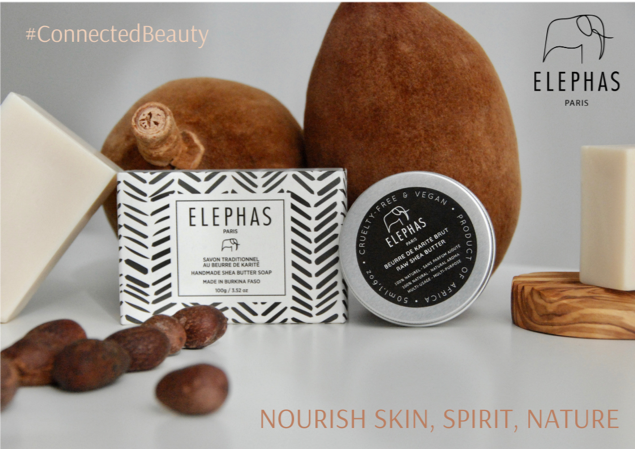
The production of ELEPHAS products begins when women harvest nuts from African shea trees and extract shea butter, highly valued for its anti-aging and moisturizing qualities. As a crucial part of this sustainable production supply chain, the women are key allies in protecting the forests which are vital habitat for one of the largest elephant populations in West Africa. Having earned the Certified Wildlife Friendly™ trustmark, this shea butter is the primary ingredient in ELEPHAS beauty products, demonstrating the company’s commitment to high quality ingredients while avoiding any palm oil derivatives, petrochemicals, or plastic packaging. The ELEPHAS mission is to foster economic independence and responsible and sustainable use of natural resources for the communities in their supply chain.
ELEPHAS is one of many social enterprises founded by eco-entrepreneur and conservationist Olivier Behra. “I consider women to be the key in Africa for a long-term economic vision which respects Nature; it made so much sense to make a link between them and women in the western world through cosmetics. Elephas’ mission is to promote this Connected Beauty: Connected to your inner self, to those who surround you, to those who provide for you through green value chains (traceable origins and supply) and to Mother Nature herself. A promise of exceptional active ingredients & efficient skincare, as well as development and sustainability to local communities – who are biodiversity’s guardians.”
“We applaud companies like Elephas who allow global consumers to vote with their pocketbooks to support communities and wildlife around the world,” said Julie Stein, Executive Director and co-founder of the Wildlife Friendly Enterprise Network. “Women supporting women who are in turn are helping to protect the remaining matriarchal African elephant herds of West Africa is a win-win-win and we love those.”
ELEPHAS is currently seeking a US distributor. If you are potentially interested or can suggest a distributor, please contact Galia: galia.nafikova@connectedbeauties.com.
###
About ELEPHAS
ELEPHAS was created to ensure that communities sharing their rich natural resources with endangered wildlife are given income-generating activities with a positive environmental impact. By harvesting their shea, capable women workers become key allies in protecting the shea tree forests, vital habitat of the largest elephant population in West Africa. For more information visit: https://www.elephas.fr/en/ and https://connectedbeauties.com/, Facebook pages: English: https://www.facebook.com/ElephasUK/ ; French: https://www.facebook.com/elephasparis/ ; Instagram: https://www.instagram.com/elephas_paris/ ; Twitter: @ElephasParis
About Wildlife Friendly Enterprise Network
WFEN and its certification programs represent grassroots farmers, ranchers, herders, artisans, indigenous peoples and conservation heroes from around the world including two World Bank Development Marketplace Award winners, a U.N. Equator Prize winner, leadership in the world’s marketplace for REDD+ Carbon Offsets, and a Time Hero for the Planet. Wildlife Friendly® products contribute to the conservation of over twelve million hectares of diverse wetlands, forests, and grasslands; protect keystone endangered species in Asia, Africa, Europe, and Latin and North America, including the Snow Leopard, Elephant, Tiger, Cheetah, Red Panda, and Wolf; and benefit over 200,000 people through increased food security, income and employment. For more information visit: www.wildlifefriendly.org, Instagram: @wildlifefriendly, Twitter: @wfen
Contact
ELEPHAS:
ELEPHAS Founder: olivier.behra@connectedbeauties.com
Brand manager France Galiya NAFIKOVA: contact@elephas.fr or galia.nafikova@connectedbeauties.com
Brand manager UK Louise POTTS: louise.potts@elephas.fr
WFEN: Christine Lippai – christine@wildlifefriendly.org
Home grown luxurious merino wool sourced from Certified Wildlife Friendly™ ranchers is part of WCS Argentina’s Patagonian Fibers with a Conscience™ program
FOR IMMEDIATE RELEASE
BUENOS AIRES AND PUERTO MADRYN, ARGENTINA (January 7, 2019)— Argentine knitwear line Maydi, 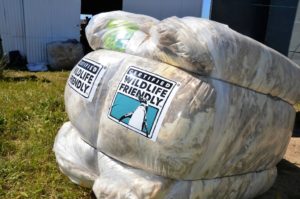

WCS Argentina supports the Merino Peninsula Valdés™ (MPV) group who are committed to managing their ranches to allow healthy populations of guanacos, rheas, and maras to co-exist with their sheep, and to use non-lethal methods to control predation by pumas, chilla foxes, and Geoffroy’s and pampas cats. Fundación Vida Silvestre Argentina (FVSA) will provide third-party verification of compliance with commitments and collaborate with WCS to monitor impacts on wildlife. “We all agree in making the coexistence between sheep ranching and healthy wildlife a long-term achievement,” said Alejandro Arias, coordinator of the FVSA program. WCS and FVSA are working together under a cooperation agreement with the USFWS to expand the sustainably managed land in the area.
Península Valdés is a 4,000–square-kilometer (1,544 square miles) protected area in Patagonia, declared a UNESCO Natural World Heritage Site in 1999. Península Valdés still harbors significant populations of native wildlife, and its waters are critical habitat for southern right whales, sea lions, magellanic penguins and elephant seals. Although a management plan has been effective in conserving coastal wildlife, the land is privately owned and sheep ranching is widespread.
“These ranchers are committed to wildlife-friendly practices because they are convinced that their economic futures are better served by moving away from maximizing sheep stocking rates and adding value by conserving native species at Península Valdés, an emblematic site of Patagonia. Our work is based on scientific research on wildlife ecology,” said Ricardo Baldi, a scientist from CONICET, the Argentine national science agency, and consultant for WCS.
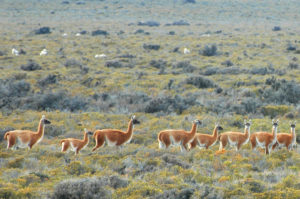
“We are so gratified to see this enthusiasm from designers and brands in sourcing Wildlife Friendly™ fibers,” said Julie Stein, former Executive Director and co-founder of WFEN, “because global consumers want to support wildlife and habitat through their purchases. This demand demonstrates to ranchers and the Argentinean government that wildlife has economic value and that wildlands and ranchlands can both thrive. Its very exciting to work with such an exceptionally talented designer like Maria who also shares our vision for a definition of sustainable fashion that includes biodiversity.”
For wholesalers, retailers and consumers interested in purchasing the Maydi line please contact: contact@maydiaz.com
###
About Maydi
Maydi uses only natural fibers and organic yarns in her hand-woven fabrics. The timeless spirit of each piece manifests itself in a 100% contemporary and refined design, carried out through the ancient techniques of hand-knitting, manual weaving loom and crochet, which are thus revalued. Maydi believes in the principles of fair trade, hence her designs are developed and produced in collaboration with local Argentine artisans, assuring them fair remuneration and respect for the legacy of their craft and art. Weaving loom is one of the oldest cultural traditions of Aboriginal peoples and a clear statement of the importance of women as transmitters of life and culture in society and selects exclusively noble materials such as merino wool of Argentine Patagonia —including yarn in spinning wheel—, mohair, cotton and silk straw. Argentine organic merino is comparable with precious fibers (such as cashmere and alpaca) for its smoothness, shine, and softness, and stands out among the main materials used in the collection. For this reason, beyond this intrinsic quality of fiber, Maydi works with Merino wools that are backed by a production process which takes care of the environment, the well-being of animals and the development of individuals and organizations involved in the entire value chain.
The dyes used are completely natural, obtained from native plants such as: Tara, Palo Amarillo, Guayacán and Cochinilla from Argentina and South America through environmentally friendly processes.
Maydi sets the quality bar very high, ensuring meticulous attention to detail in the entire process of creation of each garment, hand-made from start to finish. Thus, the design of each piece enables raw materials to speak for themselves. The brand continues to cultivate a relationship with internal market: Maydi redoubles its value for customers who appreciate good taste and high design, with made-to measure pieces. Thus, it intensifies the uniqueness of its items and justifies even more the longing for them.
INTERNATIONAL STOCKISTS
SOLIS
6, quai Jules Courmont, Angle rue Thomassin 69002 Lyon — FRANCE
www.solisboutique.com
BIOTOP
4-6-44 Shirokanedai, Minato-ku, 108-0071, Tokyo — JAPAN
www.biotop.jp
LA KAGU
67 Yaraicho, Shinjuku-ku, Tokyo — JAPAN
www.lakagu.com
PLAGE
20-17 Daikanyamacho, Shibuya-Ku 162-0805 Tokyo — JAPAN
www.plage.baycrews.co.jp/store/
CEMENT
2-14-25-101 Shimo ochiai Shinjuku-ku 161-0033, Tokyo — JAPAN
www.cement-own.com
ISETAN
3 – 14 – 1 Shinjuku, Shinjuku-Ku 160-0022 Tokyo — JAPAN
isetan.mistore.jp/store
MAIDENS SHOP
2-19-12 Jingumae Shibuya-Ku, Tokyo — JAPAN
shop.maiden.jp
CHAOS
4-10-5 Jingumae Shibuya-Ku 150-0001 Tokyo — JAPAN
www.chaostokyo.jp
ORA ET LABORA
750 Fort Worth Ave Suite H130, Dallas, TX 75208 – USA
www.oetl.co
About Wildlife Friendly Enterprise Network
WFEN and its certification programs represent grassroots farmers, ranchers, herders, artisans, indigenous peoples and conservation heroes from around the world including two World Bank Development Marketplace Award winners, a U.N. Equator Prize winner, leadership in the world’s marketplace for REDD+ Carbon Offsets, and a Time Hero for the Planet. Wildlife Friendly® products contribute to the conservation of over fourteen million hectares of diverse wetlands, forests, and grasslands; protect keystone endangered species inAsia, Africa, Europe, and Latin and North America, including the Snow Leopard, Elephant, Tiger, Cheetah, Red Panda, and Wolf; and benefit over 400,000 people through increased food security, income and employment. For more information visit: www.wildlifefriendly.org, IG: @wildlifefriendly, Twitter: @wfen
About the Wildlife Conservation Society (WCS)
MISSION: WCS saves wildlife and wild places worldwide through science, conservation action, education, and inspiring people to value nature. VISION: WCS envisions a world where wildlife thrives in healthy lands and seas, valued by societies that embrace and benefit from the diversity and integrity of life on earth. To achieve our mission, WCS, based at the Bronx Zoo, harnesses the power of its Global Conservation Program in more than 60 nations and in all the world’s oceans and its five wildlife parks in New York City, visited by 4 million people annually. WCS combines its expertise in the field, zoos, and aquarium to achieve its conservation mission.
Visit: www.wcs.org;
https://www.facebook.com/TheWCS;
https://www.youtube.com/user/WCSMedia
Follow: @thewcs
Contact:
Maydi: contact@maydiaz.com
Conicet: Ricardo Baldi: rbaldi@wcs.org
WCS: Stephen Sautner; ssautner@wcs.org
Wildlife Friendly: Christine Lippai: christine@wildlifefriendly.org
Wildlife Friendly Enterprise Network becomes first wildlife conservation organization to benefit from 2nd Life’s Electronics Buy Back Program for nonprofits
RICHMOND, VIRGINIA – MAY 30 2018 2nd Life, a Richmond based company whose mission is to responsibly repurpose pre-owned consumer electronics and computing assets via proprietary remarketing techniques and cutting edge repair capabilities, has launched an exciting new partnership with the Wildlife Friendly Enterprise Network (WFEN) to benefit the world’s most endangered wildlife called “Cash in for Wildlife.”
The world generates over 44.7 million metric tonnes of e-waste – or 4500 Eiffel Towers – annually, according to the United Nations report Global E-waste Monitor 2017, with only 20% of that recycled through appropriate channels. This presents a challenge to sustainable development and achievement of the Sustainable Development Goals (SDGs). The amount of e-waste is expected to increase to 52.2 million metric tonnes by 2021. The UN estimated the total value of all raw materials present in e-waste to be approximately 55 Billion Euros in 2016, which is more than the 2016 Gross Domestic Product of most countries in the world. With many product life cycles measured in months as consumers trade up to newer technology, and a higher percentage of consumers owning multiple devices, circular economy models need to be adopted to encourage “closing the loop” through recycling while also mitigating pollution of the environment.
E-waste at the end of its life cycle includes toxic chemicals such as arsenic, mercury, flame-retardants and lead. When illegally or improperly disposed of these toxins seep into the ground, polluting soil and groundwater and contaminating microorganisms which fish feed upon; improper burning of e-waste releases toxins into the air. E-waste exposure can lead to diseases such heart disease, cancer and can damage DNA. Children are especially vulnerable to these health risks from e-waste exposure. Once food is contaminated these toxins and heavy metals move up the food chain leading to bioaccumulation and biomagnification in apex predators including humans.
“The electronics industry impacts humans, the environment and wildlife at both ends of its life cycle” said WFEN Director and Co-founder Julie Stein. “At the source, profits from illegally mined ‘conflict minerals’ like tin, tantalite or coltan, tungsten and gold, from the eastern part of the Democratic Republic of Congo, contribute to ongoing violence in the country and illegal miners living inside protected areas are negatively affecting endangered wildlife including the critically endangered Grauer’s Gorilla whose numbers have declined by 77%, as well as the endangered Eastern Chimpanzee, and the endangered Okapi which is only found in the DRC and whose population has plummeted by 50% due to the related triple threats of deforestation, mining and bushmeat hunting by illegal miners. Our enterprise model is to create alternative livelihood opportunities such as Wildlife Friendly™ sustainable farming, tourism and handicrafts for the benefit of wildlife and communities so that they do not have to resort to illegal activities which harm the environment. This new partnership with 2nd Life will help us on several fronts to achieve our mission.”
“We designed our proprietary consumer electronics buyback platform to support retailers like Best Buy and Amazon by offering a turnkey solution so that their customers can trade-in their no longer needed electronics towards purchase of new items,” said Seth Schmidt, Chief Marketing Officer for 2nd Life. During 2016 we identified an opportunity to create a fundraising oriented platform, building on what we learned serving the for-profit sector. Essentially, the fundraising solution allows consumers to sell their used electronics from over a dozen popular categories including smartphones, tablets, laptops, drones, digital cameras and more in order to support the causes that mean the most to them. Consumers are paid a competitive value for their items and can elect to donate all or a portion of their payment to the cause, in this case, the Wildlife Friendly Enterprise Network.”
According to Michael Feibelman, President and CEO of 2nd Life, the company has three solutions to address these challenges: IT Asset Disposition for responsible end-of-life corporate computing and mobile asset refreshes; community electronic waste collection services; and now, the buyback solution that supports non-profits like WFEN and others. The goal of The 2nd Life buyback program is to generate an ongoing revenue stream for these organizations and their partners by utilizing the 2nd Life Consumer Electronics Buyback Program, which allows consumers to quickly and easily get paid for their pre-owned consumer electronics while at the same time supporting a cause, in this case helping to protect wildlife around the world.
“We are extremely grateful to Michael and his team at 2nd Life for their interest in our work and are proud to be their first and only wildlife conservation partner,” said Ms. Stein. “This partnership makes 2nd Life our newest Founding Corporate Network member along with other leading edge sustainability companies.”
For companies or individuals who would like to become part of this program with 2nd Life to benefit wildlife please contact Seth Schmidt at 2nd Life or visit https://wfen.fundello.org to cash in your digital cameras and camcorders, cell phones, laptop computers, drones, and more for the benefit of the world’s endangered wildlife.
###
About 2nd Life
2nd Life extends the useful life of all electronics through it’s primary services of IT asset disposition (ITAD) for the enterprise, consumer based trade-in and buyback solutions for retailers, manufacturers, non-profits and schools and it’s expertise in electronics repair all the way up to circuit board level work. For more information, visit https://2ndlifeinc.com
About Wildlife Friendly Enterprise Network
WFEN and its family of brands represent grassroots farmers, ranchers, artisans, indigenous communities and conservation heroes from around the world including two World Bank Development Marketplace Award winners, a U.N. Equator Prize winner, leadership in the world’s marketplace for REDD+ Carbon Offsets, a Time Hero for the Planet, and a National Geographic Big Cats Initiative grantee. Certified Wildlife Friendly® products contribute to the conservation of over twelve million hectares of diverse wetlands, forests, and grasslands; protect keystone endangered species in Asia, Africa, Europe, the Americas, including the Snow Leopard, Elephant, Cheetah, and Wolf; and benefit over 200,000 people through increased food security, income and employment. For more information visit: www.wildlifefriendly.org

(c) Primal Pastures
Warner Springs and Murrieta farm raises pastured chickens, rebuilds healthy, regenerative soils and grasslands, and coexists with wildlife.
FOR IMMEDIATE RELEASE
Warner Springs, CA, September 18, 2016 Most people don’t set up a wholesale pastured poultry operation in an area known for its mountain lion activity as much as for its orchards. Yet for farmer Paul Grieve of Pasturebird, flourishing habitat is an integral part of farming. “The important thing to us is that we build an ecosystem. Our role is to steward the land and grow a great environment for Mother Nature.”
On its newest farm site—100 acres of a 1000 acre parcel that meets the Palomar and Iron Spring Mountains in Warner Springs—Paul and his family are restoring a former potato field to permanent pasture. They ensure wildlife corridors remain open and use a variety of methods to protect their chickens, in order that a variety of wildlife can pass through the property. “We end up seeing snakes, rabbits, birds, worms, deer, and coyotes. I love being able to see those guys come through the farm but not interrupt our operations. Knowing that mountain lions are around makes it even better. It means we’re doing something right.”
This sentiment, together with a variety of husbandry practices to meet the farm’s stewardship mission, has enabled Pasturebird and sister location, Primal Pastures, to become Southern California’s first farm to achieve Certified Wildlife Friendly® status. Certified Wildlife Friendly® recognizes farms and ranches committed to regenerative practices that enable wildlife and livestock to coexist. The farm is working to restore perennial grasslands. It uses managed, multi-species grazing practices to improve soil. It conserves wildlife corridors, and relies upon proactive, humane practices to deter predators, among other key attributes. Along with peers around the globe, Pasturebird and Primal Pastures are part of a progressive wave of agriculture that models the critical role of farms and ranches in sustaining wildlife and habitat.
The farm’s efforts have been noticed by the Los Angeles Dodgers and the Lakers, both of which have accounts. “Pasturebird’s commitment to transparency and raising birds the way they were meant to live is truly inspiring,” says chef Alan Latourelle of Wolfgang Puck, another satisfied customer. Kitchen workers from the hospitality group’s Southern California staff recently toured the farm, gaining first-hand experience of what Pasturebird terms simply “real chicken.” Inspired by renowned grass farmer Joel Salatin of Virginia, Paul Greive and his family are committed to creating a scale-alternative to factory farming that cares for the land, the animals and consumers’ health.

(c) Primal Pastures
The farm started simply enough, 5 years ago, from the family’s search for healthy food for its own use: “We were paying a bunch of money for labels, but not good food,” explains Paul. “We wanted to eat meat that was not bad for the environment or our bodies,” he explains. “We couldn’t find what we were looking for.” And, so what began with an order of 54 chickens for personal use turned into a vocation for 2 generations and multiple branches of Paul’s family. Pasturebird, a wholesale operation opened in 2015, builds upon the success of Primal Pastures, the family’s direct-to-consumer farm in Murrieta.
Livestock guardian dogs are integral to the farm’s ability to coexist with wildlife. While predator losses were significant in the farm’s first true commercial year, the family quickly realized the use of lethal control “didn’t jibe at all with what we were doing,” says Paul. Rather, “we were working to “heal the land, heal the soil, and participate with nature.” Today, the farm raises its own Anatolian Shepherd/Great Pyrenees mix guardians. The dogs help to protect the flock, which is moved to fresh pasture daily in open-air, floorless chicken tractors. The farm vision includes having its operations become carbon-neutral in a few years, by offsetting the energy put into tractors and other equipment through its soil building activities.
The farm’s practices mean it is a regional model. Winston Vickers, a veterinarian with the Southern California Mountain Lion Project states: “I am thrilled that Paul and his team are leading the way in the region by taking measures to not only protect their chickens and raise healthier ones, but simultaneously helping to keep wildlife populations and the ecosystems healthy. I applaud their foresight and leadership, and urge others to follow their great example.”
Its efforts mean great food, too. “Seeing chickens that you can tell are happy and healthy is refreshing in this day and age. I never thought I would be so excited about chickens” continues Chef Latourelle. Thank you Pasturebird for what you do, it makes our jobs much easier.”
###
About Pasturebird and Primal Pastures
Primal Pastures (direct to consumer) and Pasturebird (wholesale) farms raise pastured chicken in Southern California. By rotating the chickens to fresh pasture every single day, the farm’s chicken is not only healthy and delicious but also goes beyond sustainability to rebuild healthy, regenerative soils and grasslands.
Instead of using antibiotics to fight disease within the flock, Pasturebird and Primal Pastures use a healthy environment of pasture, sunshine, fresh air, and space to prevent sickness. Instead of marketing vegetarian-fed chicken (chickens are not vegetarians), we want our chickens to eat as many bugs and worms as possible. And instead of hiding our farm from the public, we know that our best marketing is transparency, so we regularly open the ranch for tours and events. For more information, contact Paul Greive via 855-4PASTURE or paul@pasturebird.com and visit www.pasturebird.com and www.primalpastures.com
About Wildlife Friendly Enterprise Network
The Wildlife Friendly Enterprise Network and its Certified Wildlife Friendly® and Predator Friendly® programs represent farmers, ranchers, artisans and conservation heroes from around the world. Participating farms in North America maintain and enhance wildlife habitats and employ a mix of careful observation and proactive practices to allow wildlife and livestock to coexist.
Certified Wildlife Friendly® products contribute to the conservation of over twelve million hectares of diverse wetlands, forests, and grasslands; protect keystone endangered species in North America, Europe, Africa, Asia and Latin America, including wolves, elephants, cheetahs, red pandas and snow leopards, and benefit over 200,000 people through increased food security, income and employment. For more information visit: www.wildlifefriendly.org
Contact:
Paul Greive, Chief Executive Officer
Pasturebird Poultry Company
855-4PASTURE; paul@pasturebird.com
Educational Ranch Conserves Natural Habitats while producing Sustainably-produced Foods
FOR IMMEDIATE RELEASE
Basalt, Co, FEBRUARY 11, 2016 Following a rigorous auditing process, Certified Wildlife Friendly® is pleased to recognize Aspen Center for Environmental Studies (ACES) at Rock Bottom Ranch for their work to prioritize habitat conservation alongside agricultural production and education. Rock Bottom Ranch (RBR), which is operated as a site of the environmental education non-profit, ACES, implements carefully orchestrated production systems that mimic natural biological cycles and allow adjacent ecosystems and wildlife to thrive. Located between the Crown of Mt. Sopris and the Roaring Fork River in Basalt, Colorado with Aspen’s iconic Maroon Bells-Snowmass Wilderness as a backdrop, RBR is the first farm in Colorado to meet Certified Wildlife Friendly® criteria for land and livestock management, with special focus on biodiversity and habitat conservation.
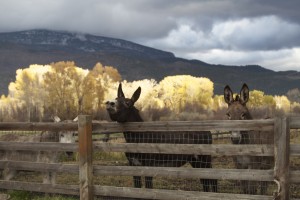
Burros enjoy the view at Rock Bottom Ranch Photo: Aspen Center for Environmental Studies
According to site Director Jason Smith, RBR’s operations seek to show how wildlife, natural landscapes, and domestic agriculture are both possible and healthy. “Agricultural production has a rich history in the American West and small farms and local food systems are gaining noticeable momentum,” says Smith. “The scalable and replicable sustainable production methods we use at RBR demonstrate the possibilities for productive local food systems in high-altitude climates like the Roaring Fork Valley, which are often located at the intersection between agricultural and wild lands.” Rock Bottom Ranch is taking it a step further to show how production systems and land management techniques can actually benefit natural habitats and area wildlife.
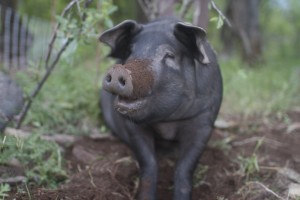
A Heritage Breed Pig at Rock Bottom Ranch Photo: Aspen Center for Environmental Studies
At Rock Bottom Ranch, Smith emphasizes care for the land as a primary responsibility: “The Ranch’s multi-species rotational grazing system promotes nutrient cycling that results in healthy, sustainable forage for our domestic livestock as well as our wild neighbors.” The system also saves on equipment, fuel, fertilizer, and labor costs, both in terms of agricultural production and habitat restoration. For example, RBR’s heritage breed pigs will occasionally assist with on-site restoration projects: under careful watch the pigs are allowed to root, or dig in the soil, a natural instinct that creates disturbance—like the fire and flood regimes of the past—in some of the Ranch’s mature cottonwood forests. The result has been the regeneration of stands of young trees, which are prime habitat for countless native wildlife species.
“Certified Wildlife Friendly®, is excited to welcome RBR to the Wildlife Friendly Enterprise Network,” says Executive Director Julie Stein. RBR’s methods benefit species such as mountain lion, black bear, bobcat, coyotes, elk, deer, and numerous birds of prey. Wetlands on-site also attract myriad migratory birds like the Yellow-headed Blackbird, as well as Great Blue Heron, White-faced Ibis, Trumpeter Swans and many other species. “Following the reviewed auditing process, which assesses criteria from careful stewardship of rangelands to proactive practices to protect livestock to habitat restoration, RBR joins peers around the world who implement best practices for biodiversity conservation and business.” RBR is the 10th farm the United States that holds Certified Wildlife Friendly® status.
For Smith, who “came to farming backwards” following an upbringing in restaurants and six years as chef at Aspen’s famed Little Nell, ACES at Rock Bottom Ranch is a laboratory in which sustainable agriculture and wildlife conservation go hand-in-hand. Smith says, “We’re honored that our efforts align with the Certified Wildlife Friendly® mission and look forward to seeing more farms in Colorado acknowledged for similar work.” In addition to its Wildlife Friendly® certification, ACES at Rock Bottom Ranch is certified for its high-welfare animal care by the Animal Welfare Approved program.
Certified Wildlife Friendly® looks forward to working with other farms in Colorado and throughout the American West towards a collaborative balance between wildlife conservation and agricultural production.
##
About Aspen Center for Environmental Studies and Rock Bottom Ranch
Aspen Center for Environmental Studies (ACES), a non-profit organization founded in 1968, provides programs in ecological literacy, sustainable agriculture, forest health, ecosystem restoration, and civic leadership for everyone from school children to leaders and decision makers. Partnership programs with 48 regional schools helps teachers meet state science standards while offering local children the opportunity to explore their outdoor environment. For more information about Aspen Center for Environmental Studies, visit: www.aspennature.org.
ACES at Rock Bottom Ranch (RBR), a 113 acre working ranch and educational farm, is one of four sites operated by the organization. RBR is western Colorado’s “school” for teaching people of all ages how to grow healthy local, sustainable food. In the winter months, RBR is open to the public Monday – Friday, with guided farm tours on Wednesdays and Fridays at 11AM. Other programs include Farm to Table dinners, cooking demonstrations, kids’ camps, and more. Sustainably-raised lamb, pork, poultry, eggs, produce, and cut flowers are available directly from the Ranch and at the weekly Aspen and Basalt farmer’s markets in season. To learn more about ACES at Rock Bottom Ranch and available products, contact Smith at jsmith@aspennature.org or 970-927-6760.
About Wildlife Friendly Enterprise Network
The Wildlife Friendly Enterprise Network and its Certified Wildlife Friendly® and Predator Friendly® programs represent farmers, ranchers, artisans and conservation heroes from around the world. Participating farms in North America maintain and enhance wildlife habitats and employ a mix of careful observation and proactive practices to allow wildlife and livestock to coexist.
Certified Wildlife Friendly® products contribute to the conservation of over twelve million hectares of diverse wetlands, forests, and grasslands; protect keystone endangered species in North America, Europe, Africa, Asia and Latin America, including wolves, elephants, cheetahs, red pandas, and snow leopards, and benefit over 200,000 people through increased food security, income and employment. For more information visit: www.wildlifefriendly.org
Contact:
Eliza Greenman Burlingame, Marketing Director
Aspen Center for Environmental Studies
Tel: 970.925.5756
Email: egreenman@aspennature.org
FOR IMMEDIATE RELEASE
WCS Madagascar brings raffia, cocoa beans, vanilla, cloves and community managed tourism to the Certified Wildlife Friendly® suite of conservation enterprises, products and services while protecting some of the most endangered primates in the world
ANTANANARIVO, MADAGASCAR: – 14 May 2015 – The Wildlife Friendly Enterprise Network (WFEN), a global community dedicated to supporting products that conserve threatened wildlife and contribute to economic vitality in rural landscapes, is pleased to announce the awarding of Wildlife Friendly® Certification to the Wildlife Conservation Society-Madagascar (WCS) program for raffia, cocoa beans, vanilla, cloves and community managed tourism which are all produced or managed by communities living around the Makira Natural Park in northeastern Madagascar. This 1,400 square mile block of forest is unique it in that it provides a refuge for numerous rare, threatened, vulnerable and endemic species including 20 threatened lemur species, three of which are amongst the 25 most endangered primates in the world. The forest plays an important role in maintaining connectivity for species between the forests of eastern and northern Madagascar, and in the provision of ecosystem services like water regulation and supply and carbon storage.
“We are thrilled to be able to offer these new Wildlife Friendly® ingredients and to make them available to buyers around the world. These products will help to share Madagascar’s extraordinary story of people, wildlife and forests to aspirational consumers around the world,” said WFEN Executive Director Julie Stein. “We already have several buyers lined up and ready to begin sourcing these products from the Makira region.”
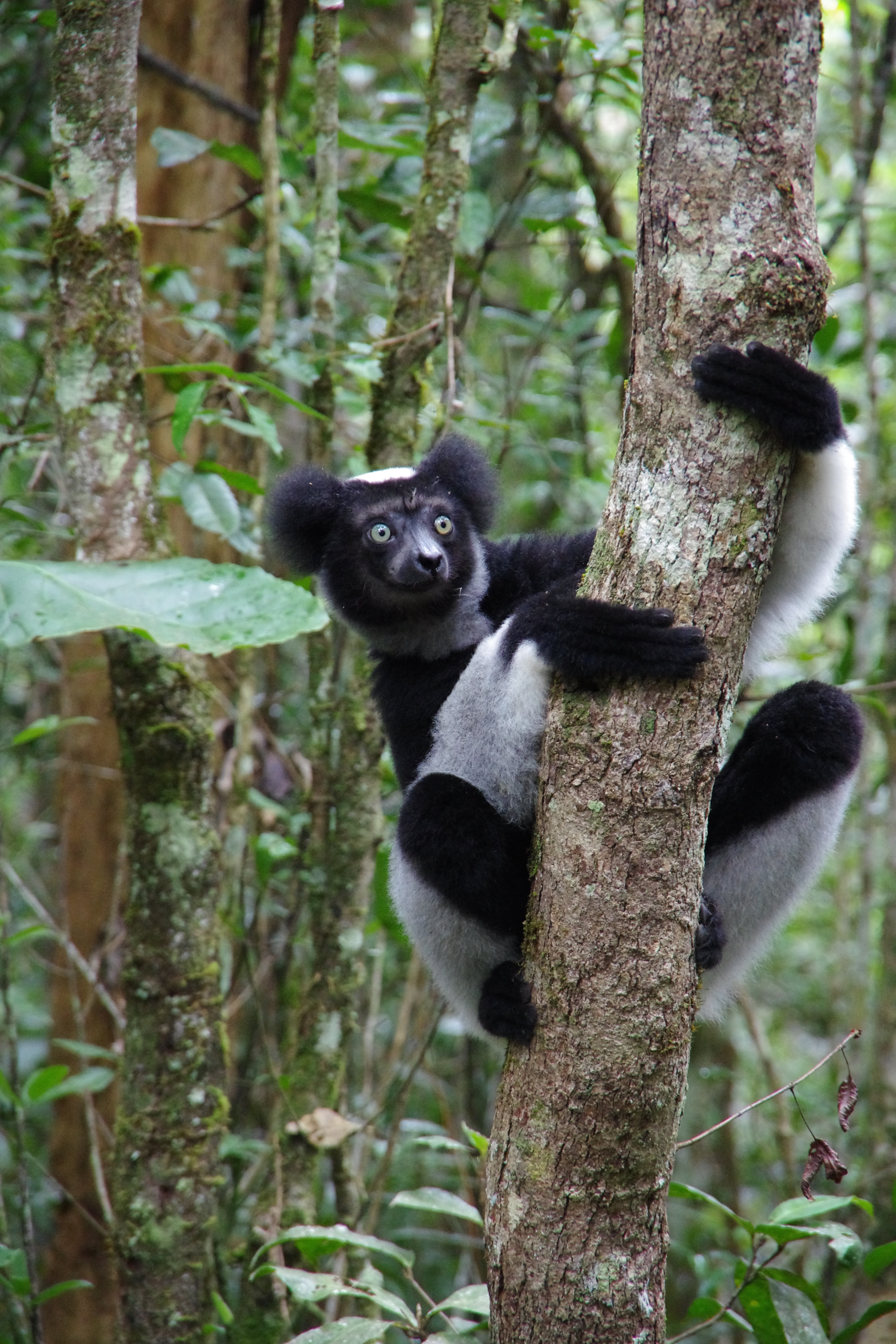
Indri Lemur, photo courtesy of M. Pedrono
WCS is the delegated manager of the Makira Natural Park which was formally created in 2012 after a ten-year period of consultation with local communities, and socio-economic and ecological studies. WCS collaboratively manages the Park with local communities and has a strong commitment to contributing to the improved wellbeing of local populations. WCS has supported 67 community associations to establish a ‘green belt’ around the core forest of Makira and works with these communities to diversify livelihoods options through improving production skills and access to markets for high-quality natural resource based products. In return communities are active partners in Park management activities through involvement in patrols and ecological monitoring activities.
“We are very proud to have obtained this certification for the products produced by communities living around Makira. The work that we do with local communities to improve production quality and thus help to ensure sustainable households revenue has the ultimate goal of contributing to the conservation of the unique biodiversity found in this area, and the Wildlife Friendly® certification is a recognition of this link. We have had very positive feedback from international clients on the quality of products from Makira, and we are delighted to be part of the Wildlife Friendly network as it will help us increase the visibility of these products in new markets” said Alison Clausen, Country Director of the WCS Madagascar program.
###
About Wildlife Friendly Enterprise Network
WFEN and its Certified Wildlife Friendly® and Predator Friendly® certification programs represent grassroots farmers, ranchers, artisans and conservation heroes from around the world including two World Bank Development Marketplace Award winners, a U.N. Equator Prize winner, leadership in the world’s marketplace for REDD+ Carbon Offsets, a Time Hero for the Planet, and a National Geographic Big Cats Initiative grantee. Certified Wildlife Friendly® products contribute to the conservation of over twelve million hectares of diverse wetlands, forests, and grasslands; protect keystone endangered species in Asia, Africa, Europe, and Latin and North America, including the Snow Leopard, Elephant, Cheetah, Spectacled Bear, and Wolf; and benefit over 200,000 people through increased food security, income and employment. For more information visit: www.wildlifefriendly.org
About the Wildlife Conservation Society (WCS)
MISSION: WCS saves wildlife and wild places worldwide through science, conservation action, education, and inspiring people to value nature. VISION: WCS envisions a world where wildlife thrives in healthy lands and seas, valued by societies that embrace and benefit from the diversity and integrity of life on earth. To achieve our mission, WCS, based at the Bronx Zoo, harnesses the power of its Global Conservation Program in more than 60 nations and in all the world’s oceans and its five wildlife parks in New York City, visited by 4 million people annually. WCS combines its expertise in the field, zoos, and aquarium to achieve its conservation mission. Visit: www.wcs.org;https://www.facebook.com/TheWCS; https://www.youtube.com/user/WCSMedia Follow: @thewcs.
Contact:
Wildlife Friendly
Julie Stein: Julie@wildlifefriendly.org
FOR IMMEDIATE RELEASE
The first Certified Wildlife Friendly® Enterprise in the Philippines
Palawan, Philippines – July 17, 2014 – The Wildlife Friendly Enterprise Network (WFEN), a global community dedicated to supporting products that conserve threatened wildlife and contribute to economic vitality in rural landscapes, is pleased to announce the awarding of Wildlife Friendly® Certification to Mangrove Paddle Boat Tour Guide Association Inc. located in Sabang, Puerto Princesa, Palawan.
The old growth mangrove forests of the Puerto Princesa Subterranean River National Park (PPSRNP) are one of the most important biodiversity conservation areas of the Philippines. Mangroves are highly significant in supporting the rich marine life in the St. Paul Bay where smaller fish feed and reproduce. The mangroves are home to reptiles (Phyton sp., Mangrove snake (Bioga dendrophila), and Water Monitor lizard (Varanus palawanensis), as well as breeding site for endangered avian species such as the Palawan Peacock Pheasant (Polyplectron emphanum), White-collared Kingfisher (Halcyon chloris), Stork-billed Kingfisher (Halcoyn capensis), Eastern Reef Egret (Egretta sacra), and Pale Spiderhunter (Arachnothera dilutior).
Sabang Mangrove Paddle Boat Tour provides a unique eco-tourism experience by hosting guided canoe trips and boardwalk access to this unique, centuries old forest and its wildlife. But they also take an active role in protecting its wildlife and educating Filipinos and visitors about the importance of conserving this important ecosystem and the endangered species that need the mangroves to breed, migrate through and call home.
Human pressures on coastal ecosystem of Palawan are high, with land competition for aquaculture, agriculture, infrastructure, and tourism. The delicate balance of the mangrove ecosystem is vital to the health and vitality of the mangrove itself and the overall biodiversity of marine, freshwater and terrestrial endangered species.
“Our product is the beauty and service of the mangroves to the environment; protection of wildlife in the area is very much our concern” – notes Sabang community member and paddle boat guide, Crisanto. The Mangrove Paddle Boat Tours have increased community and visitors’ awareness on the significance the mangrove ecosystem and serve as patrols to protect the wildlife and habitat.
“WFEN is thrilled to have our first Certified Wildlife Friendly® enterprise in the Philippines. The Mangrove Paddle Boat Tour Guide Association is doing such wonderful work to protect endangered species and the unique Mangrove habitat of Palawan. The eco-tourism product they provide is truly an experience that visitors will remember for a lifetime.” says says Ann Koontz, WFEN board, vice president who was on hand in Palawan to award the association their Wildlife Friendly Certification. Read more »


